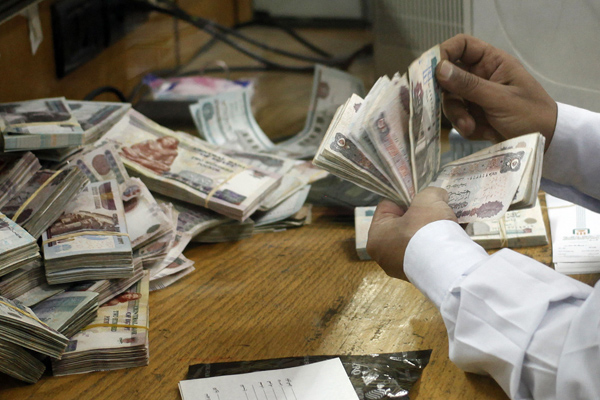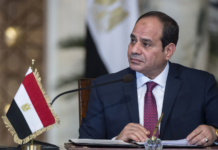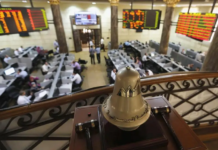by Maye Kabil: The National Bank of Egypt is to launch a new investment fund aimed at attracting the savings of Egyptians working in the Gulf states that are not already invested in the market there.
Attracting the savings of Egyptians working abroad has been a repeated target for governments and banks since 2011. Remittances of Egyptians abroad are a main source of income, reaching $18.5bn in the previous financial year.
More Egyptians have been sending money to Egypt since the 2011 Revolution, and financial institutions want to benefit from the trend. However Erini Qediss, manager of a private bank, says these funds are expected to be more attractive for customers with small savings who do not have a bank account and want to invest their money.
“Such funds will not attract big money because of the low interest rate compared with other banking products,” Qediss Says.
Although many Egyptians abroad had expressed their interest in investing in Egypt in recent years, several initiatives failed to encourage them to bring in considerable amounts of their money. The latest initiative came in September when President Abdel-Fattah El-Sisi urged Egyptians in the country and abroad to subscribe to investment certificates dedicated to financing the enlargement of the Suez Canal.
The five-year certificates were the market’s largest maturity and were offered in three quarterly paid categories: LE10 , LE100 and LE1,000. The guaranteed return of 12 per cent on investment was 3.5 per cent higher than banks were offering on deposits maturing up to one year.
While Egyptian citizens applauded the issuance with a turnout of 81 per cent, expatriates purchased fewer than 1 per cent of the certificates as officially announced. However, it is expected that Egyptians working abroad have further contributed to the LE64bn (almost US$9bn) subscriptions collected through funds in existing bank accounts in Egypt, particularly when in foreign currency, or through sending remittances to allow the family to buy investment certificates, according to the article “Mobilising diaspora savings for investments in Egypt” on the World Bank blog.
A total of 17 per cent of the subscriptions were foreign currency bank deposits that depositors converted to domestic currency to book certificates. About 42 per cent of contributions came from outside the banking system, while remittances rose significantly in the last two quarters compared with 2013.
“Even if one takes these three different channels into account, we think participation was below potential considering the size of the Egyptian diaspora and its potential savings,” the World Bank article says.
Based on conservative assumptions, it has been estimated that about 3.5 million Egyptian migrants abroad have savings of about US$6.7bn. The actual diaspora savings are probably higher as amongst others the estimation does not include the second and further generation diaspora stocks.
Other international experiences in leveraging diaspora savings, including developing countries like India have shown that bonds for the diaspora can be an important and innovative source of financing, targeting new and previously untapped investors. The diaspora is likely to be more willing to invest in the country of origin than foreign investors, also in local currency, and might provide a “patriotic” discount (Ketkar and Ratha, 2011). Compared with national investors they have the added value of bringing foreign exchange to the country.
Egypt could make stronger use of its diaspora for financing for development in the future. Projects like the issuance of retail bonds for the Suez Canal enlargement are attractive for diaspora investors, leveraging patriotism and the willingness to invest in the countries future and at the same time offering an attractive investment opportunity. Further investments will be needed in the energy sector and for other developments related to the Suez Canal. Through a reengineering of distribution channels inspired by international experiences but based on the characteristics of Egypt’s financial system and its diaspora, the country could further tap the resources of its diaspora for these upcoming national investment projects.












